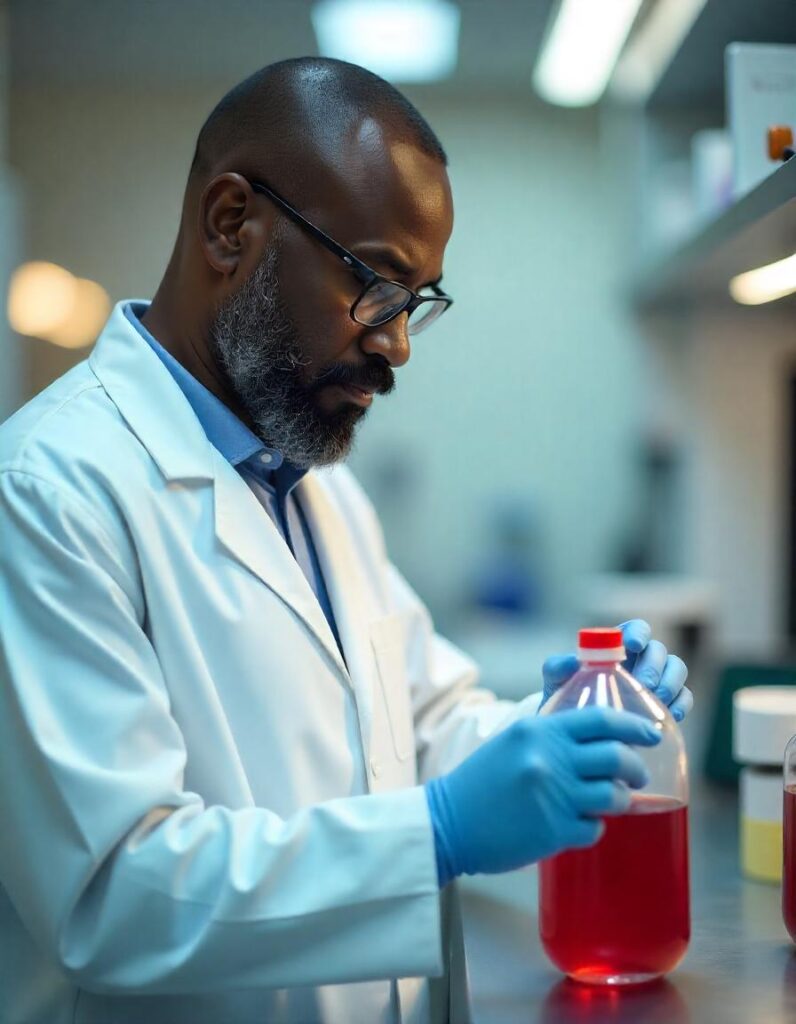When you give blood, you don’t just offer a liquid. You offer hope. Your blood donation is the foundation of a critical network that supports countless lives across Nigeria. From emergencies to surgeries, from cancer treatments to childbirth complications, blood banks serve as life-saving resources. Yet, many Nigerians are unaware of the vital role their donations play and where their precious blood actually goes.
In this article, we break down how blood donation works, the benefits of donating blood, and the significance of understanding blood types and rhesus factors. Whether you’re a first-time donor or someone who regularly donates blood, it’s important to grasp the impact of your donation.
How Does Blood Donation Work?
The process of blood donation may seem simple, but it is a highly organized and carefully monitored activity. When you donate blood, it’s collected, tested, processed, and then distributed to hospitals and clinics across the country. But before this can happen, your blood must undergo several essential steps.
First, your blood is carefully screened for diseases like HIV, hepatitis, and syphilis, ensuring that only safe blood reaches those in need. The blood group (whether you’re A, B, AB, or O) and rhesus factor (positive or negative) are crucial details as they determine compatibility with patients. This is why knowing your blood group and genotype is essential before donating.
What Happens to Donated Blood?
Once collected, your blood can be used in various ways. There are several components of blood, including red blood cells, plasma, platelets, and white blood cells. Each of these plays a crucial role in treating different conditions.
-
Red Blood Cells – These are vital for people suffering from blood loss due to trauma, surgery, or conditions like anemia.
-
Platelet Donation – Platelets are used to treat patients with leukemia or those undergoing chemotherapy.
-
Plasma Donation – Plasma, which is the liquid component of blood, contains proteins crucial for clotting and can be used in burn victims, trauma patients, and those with clotting disorders. Plasma donation centers are located nationwide, providing the right resources for people willing to donate plasma.
-
Stem Cell Donation – Bone marrow and stem cell donations are critical in treating blood cancers like leukemia. Blood banks facilitate bone marrow donation programs, which can be a lifesaver for those in need.
The blood you donate doesn’t just end up in a generic blood supply. Instead, it is often sent directly to specialized plasma centers or hospitals that treat individuals based on specific needs.
The Lifesaving Importance of Blood Banks in Nigeria
In Nigeria, blood donation is a vital part of the healthcare system, but it often faces challenges. With a population of over 200 million people, blood banks in Nigeria must work relentlessly to meet the demand for blood transfusions. However, many blood banks are often understocked, leading to a shortage of vital supplies.
That’s where you come in. Every blood donation makes a difference. Oneus, an innovative Nigerian health organization, is leading the charge in improving blood donation awareness and efficiency. By providing educational resources and organizing blood drives, Oneus helps increase awareness of the blood donation process and its importance. Through their platform, you can easily book your donation or even explore opportunities to donate plasma and platelets. The goal is clear: give blood, save a life.

The Benefits of Donating Blood
Besides saving lives, blood donation offers multiple health benefits. Did you know that donating blood can actually improve the health of your skin? Studies have shown that regular blood donation can stimulate the production of new red blood cells, giving your skin a fresher and healthier appearance. Moreover, the process reduces iron levels in your body, which could lower the risk of heart disease.
Furthermore, regular blood donation can be an excellent way to monitor your health. During the process, your blood is screened for potential health issues, giving you an early warning of any risks you might face.
Plasma Donation: A Critical Resource
In addition to blood donation, plasma donation has become a cornerstone in modern medical treatment. Plasma is the liquid part of your blood, rich in proteins that help with clotting and healing. This makes plasma crucial for treating burn victims, cancer patients, and individuals with blood clotting disorders.
Plasma can be donated at plasma donation centers, and Oneus facilitates this process by offering tips on how to donate plasma safely. Many people are unaware that selling plasma is also an option, though it’s a controversial subject in Nigeria, with various ethical and legal implications. If you are considering donating or selling plasma, it’s important to ensure you’re dealing with genuine plasma donation centers and have all the necessary information on the process.
The Consequences of Not Donating Blood
The risks associated with not donating blood are severe. A lack of blood donations can lead to shortages in hospitals, meaning patients may not receive the vital transfusions they need during critical moments. Many individuals, especially in rural parts of Nigeria, may lose their lives due to insufficient blood supply during childbirth, surgeries, or accidents. The need for donors is constant and urgent.
How to Help: Give Blood, Save a Life
It’s time to take action. By donating blood, you’re not just helping a stranger—you’re helping your community, your loved ones, and potentially saving a life. If you are ready to make a difference, visit Oneus and book your donation today.
Give Blood, Save a Life – Book Your Donation Now!
Contact us at info@oneusng.com or +234 902 168 2822, or visit www.oneusng.com.




